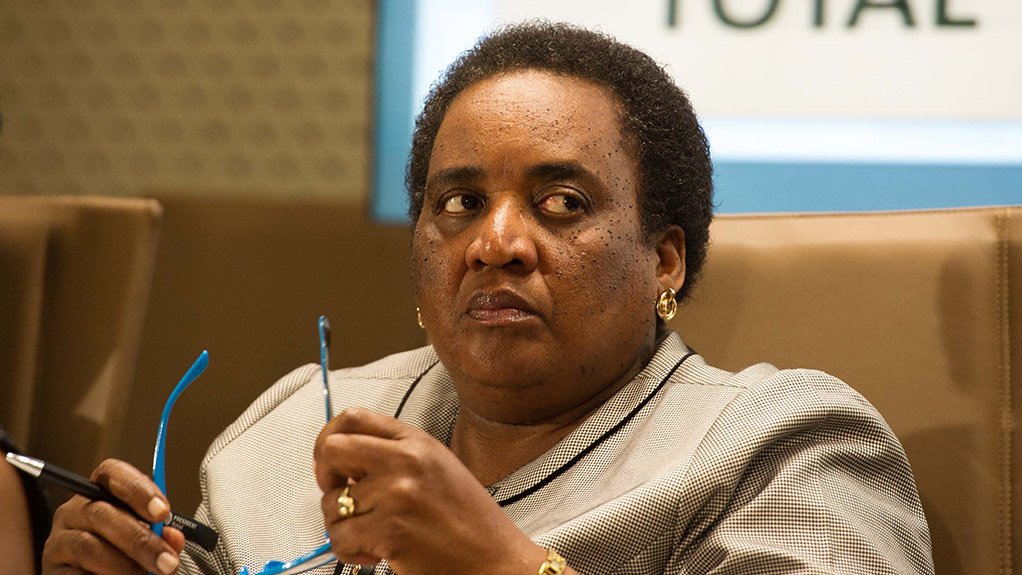Labour Minister Mildred Oliphant has announced that the Equity Act will be amended, following a report by the South African Human Rights Commission that found some policies around affirmative action unconstitutional and not aligned with international best practice.
She said, in her opening address at the twenty-third yearly National Economic Development and Labour Council (Nedlac) Summit, that the department will “defend [the] gains” it has made thus far.
Oliphant also pointed out that Parliament has finalised the minimum wage legislation and that it was submitted last week to President Cyril Ramaphosa for approval.
After Ramaphosa has consulted with constitutional representatives, he will promulgate and officiate the legislation.
The National Minimum Wage Bill is anticipated to improve the lives of about 6.6-million workers who currently earn less than R20/h.
Further, the Unemployment Insure Act amendments are also with the President for approval. The Act was amended mostly as a result of organised labour wanting to contribute to job creation and establish schemes to empower workers that have been retrenched.
Meanwhile, Deputy President David Mabuza delivered the keynote address at the summit, pledging his unwavering commitment to bring together government, labour, business and community structures for the common purpose of economic growth and job creation.
“Today, we meet in a time of great economic challenges facing our country, with declining revenues, sluggish economic growth, an inflation outlook that is increasingly perilous, coupled with high fuel prices and consumer and business confidence declining. Nedlac needs to collaboratively respond [and] work with government in assisting National Treasury to develop measures to cushion the poor and restart the economy.
“Our country is known for its introduction of world-class policies, but also for the shortcoming of not implementing those policies,” he said, adding that South Africa’s inequality level and wage differences are too high.
Mabuza lamented that the country can no longer afford corruption, greed, squander and decay.
He stressed that, just as government made the commitment to root out bad governance, so should Nedlac, business and public servants.
Mabuza added that preparatory work is at an advanced stage for the upcoming job and investment summits.
“Instead of focusing on industrialisation, we will be leveraging on the potential of small and medium enterprises, ensuring their integration into the global value chain, using them to provide a solid base for future industrialisation.”
Meanwhile, Nedlac executive director Madoda Vilakazi said the 2017/18 year was characterised by epoch-making developments and engagements at Nedlac.
The discussions on the National Health Insurance and Comprehensive Social Security have started in earnest. He expressed confidence that the agreements will conclude some time in 2019, and bring the nation closer to the ideals of the Freedom Charter.
Despite serious capacity constraints, the work of Nedlac went up a few notches in terms of quality and quantity, said Vilakazi. A total of 42 committees and task teams engaged in executing the mandate of social dialogue.
In the year under review, Nedlac achieved 89% of the planned targets in the approved Annual Performance Plans.
Of the 47 planned key performance indicators, 42 were achieved. Vilakazi noted that this is a great feat given the chronic shortage of human and financial resources for the type of work that Nedlac does.
“In the instances where targets were not met, it was primarily owing to the complexity of matters and interminable, but justified, mandating and negotiating processes between and within social partners.”
Nedlac community convenor Thulani Tshefuta pointed out that, in light of the stubbornly high unemployment rate, it is clear that not all eligible South Africans can be absorbed into formal employment.
“Therefore, we have to promote the prospects of economic activity and self-employment through entrepreneurship and large-scale participation in cooperatives.”
He expressed the hope that the Nedlac governance team will move with precision in pursuing its long overdue task of reviewing the founding and institutional instruments that can reposition Nedlac to deepen social dialogue in South Africa.
In this process, Tshefuta assured that the Nedlac community constituency will continue to make a clarion call for full and equal representation and participation in all Nedlac chambers and structures.
Moreover, Nedlac labour convenor Bheki Ntshalintshali stated that failure to confront the challenge of inequality in South Africa will result in the loss of potential gains from the population dividends and also lead to weak economic performance and even social problems.
“Wage inequality is commonly viewed as a feature of the country’s labour market that contributes to instability in industrial relations. Nedlac has to take this into account in its future work planning.”
Finally, business convenor Kaizer Moyane stated in Nedlac’s yearly report that Nedlac has already started deliberations on two land reform Bills. However, given the Parliamentary developments and processes around the provisions of the Constitution on expropriation of land, work had to be halted, to align with the outcomes of the Parliamentary process.
“While the issue of land is no doubt one of the most crucial for our country, which must be accorded the time it deserves, we hope that the outcomes, including any subsequent enabling legislation, will recognise the importance of policy certainty and economic development as part of the solutions,” he said.
EMAIL THIS ARTICLE SAVE THIS ARTICLE ARTICLE ENQUIRY
To subscribe email subscriptions@creamermedia.co.za or click here
To advertise email advertising@creamermedia.co.za or click here











